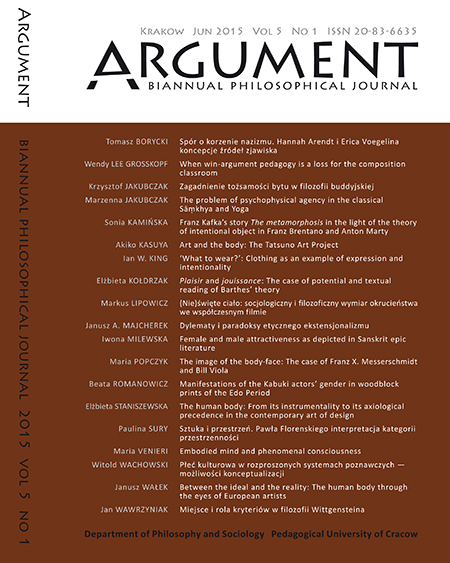The problem of psychophysical agency in the classical Sāṃkhya and Yoga perspective
Słowa kluczowe:
action, agency, Indian philosophy, psychophysical integrity, mental causation, karmanAbstrakt
TheThe paper discusses the issue of psychophysical agency in the context of Indian philosophy, focusing on the oldest preserved texts of the classical tradition of Sāṃkhya-Yoga. The author raises three major questions: What is action in terms of Sāṃkhyakārikā (ca. fifth century CE) and Yogasūtra (ca. third century CE)? Whose action is it, or what makes one an agent? What is a right and morally good action? The first part of the paper reconsiders a general idea of action - including actions that are deliberately done and those that ‘merely’ happen - identified by Patañjali and Ῑśvarakṛṣṇa as a permanent change or transformation (pariṇāma) determined by the universal principle of causation (satkārya). Then, a threefold categorization of actions according to their causes is presented, i.e. internal agency (ādhyātmika), external agency (ādhibhautika) and ‘divine’ agency (ādhidaivika). The second part of the paper undertakes the problem of the agent’s autonomy and the doer’s psychophysical integrity. The main issues that are exposed in this context include the relationship between an agent and the agent’s capacity for perception and cognition, as well as the crucial Sāṃkhya-Yoga distinction between ‘a doer’ and ‘the self’. The agent’s self-awareness and his or her moral self-esteem are also briefly examined. Moreover, the efficiency of action in present and future is discussed (i.e. karman, karmāśaya, saṃskāra, vāsanā), along with the criteria of a right act accomplished through meditative insight (samādhi) and moral discipline (yama). (yama).


